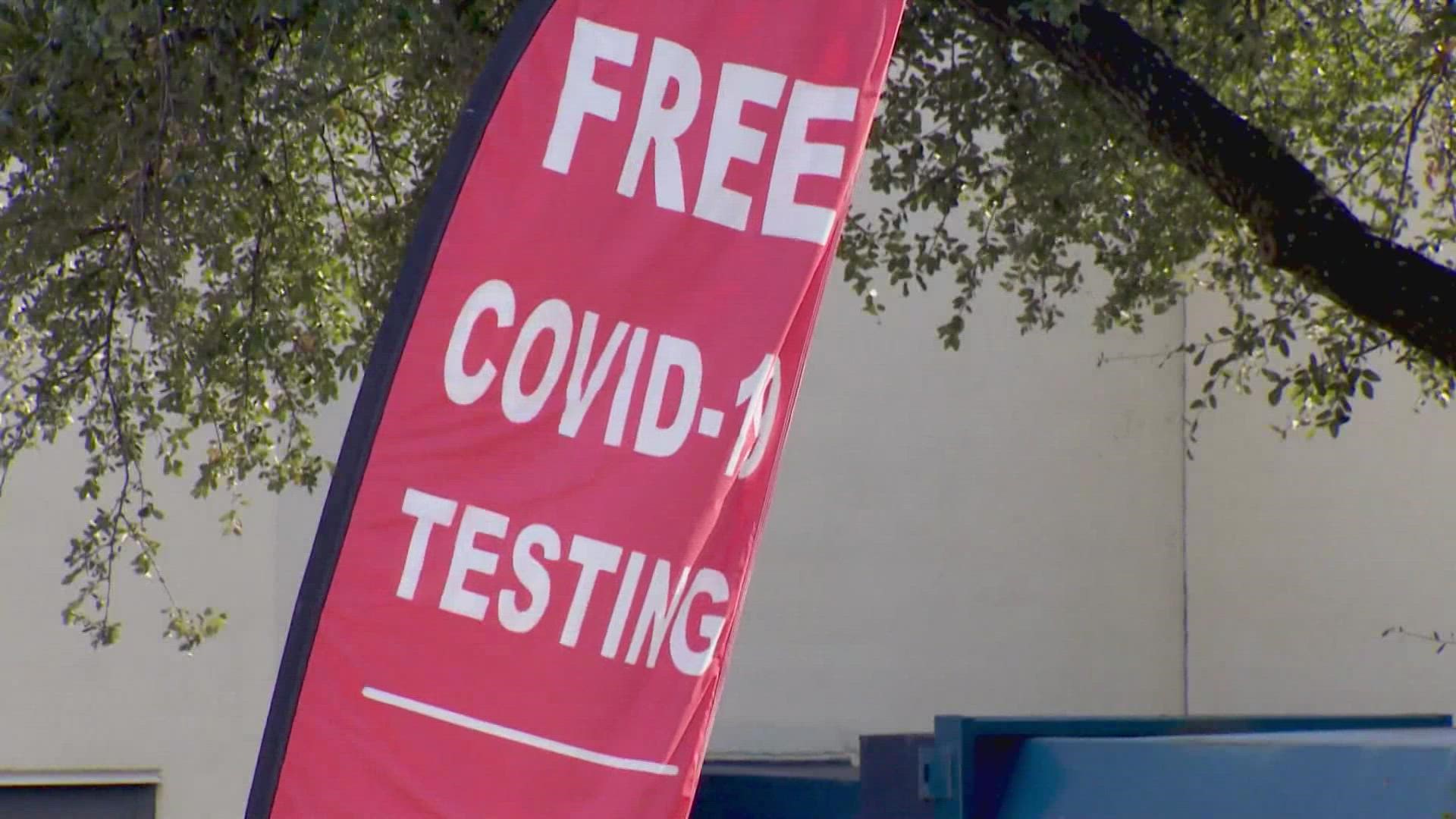DALLAS — COVID testing sites are beginning to pop up all across North Texas.
As the omicron variant spreads, the demand for tests goes up - as is the number of complaints originating from those tests sites. Local and federal agencies are now warning consumers of possible scams.
"I've called them twice. I've sent two emails with no response," said one patient, who did not want to be identified. She told WFAA that she has yet to receive her COVID test results. It's making her wonder if the place she waited hours for is legitimate.
Justin Simons is the CEO of MyLabsDirect, a certified and accredited laboratory with full service diagnostic lab testing, including tests for COVID. He said there is reason to be concerned.
"Lot of groups are treating this is as a smash-and-grab," he said. "(Test sites) are popping up out of nowhere. They are not affiliated with a legitimate laboratory."
"It's not been core to the business...it's been a big part of it now," he added.
Simons said he has noticed the upswing in test pop-ups, and he said people should research where their sample is going. Unlike at MyLabsDirect, in many cases, the testing site and lab are often two different entities. Justin urged people to ask the testers about the CLIA, or Clinical Laboratory Improvement Amendments, number for the lab. It is a 10-digit number that indicates the lab is federally regulated.
Justin said there are some red flags that people should pick up on when at a site, including:
- How well is it run?
- Is it sanitary?
- Are they asking you to write down private information on paper?
- Is the wait too long?
- Are the testers unprofessional and/or inefficient?
"A turnaround time beyond 72 hours to me is a red flag," Justin said.
WFAA has also heard from the public about testing sites asking for social security and credit card numbers. These can still be legit operations in the event the patient does not have insurance. But still, do your research, urged the Better Business Bureau.
"My experience shows me that the crooks will follow the headlines, and the crook’s prey on our confusion,” explained Monica Horton with the BBB.
Currently, the state does not license pop-up testing sites, and the feds ask that patients rely on testing sites affiliated with city and county health departments and hospitals.

